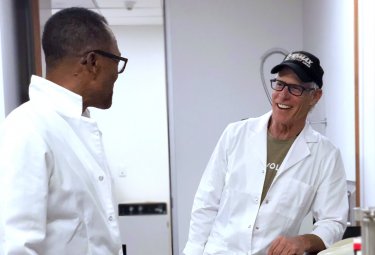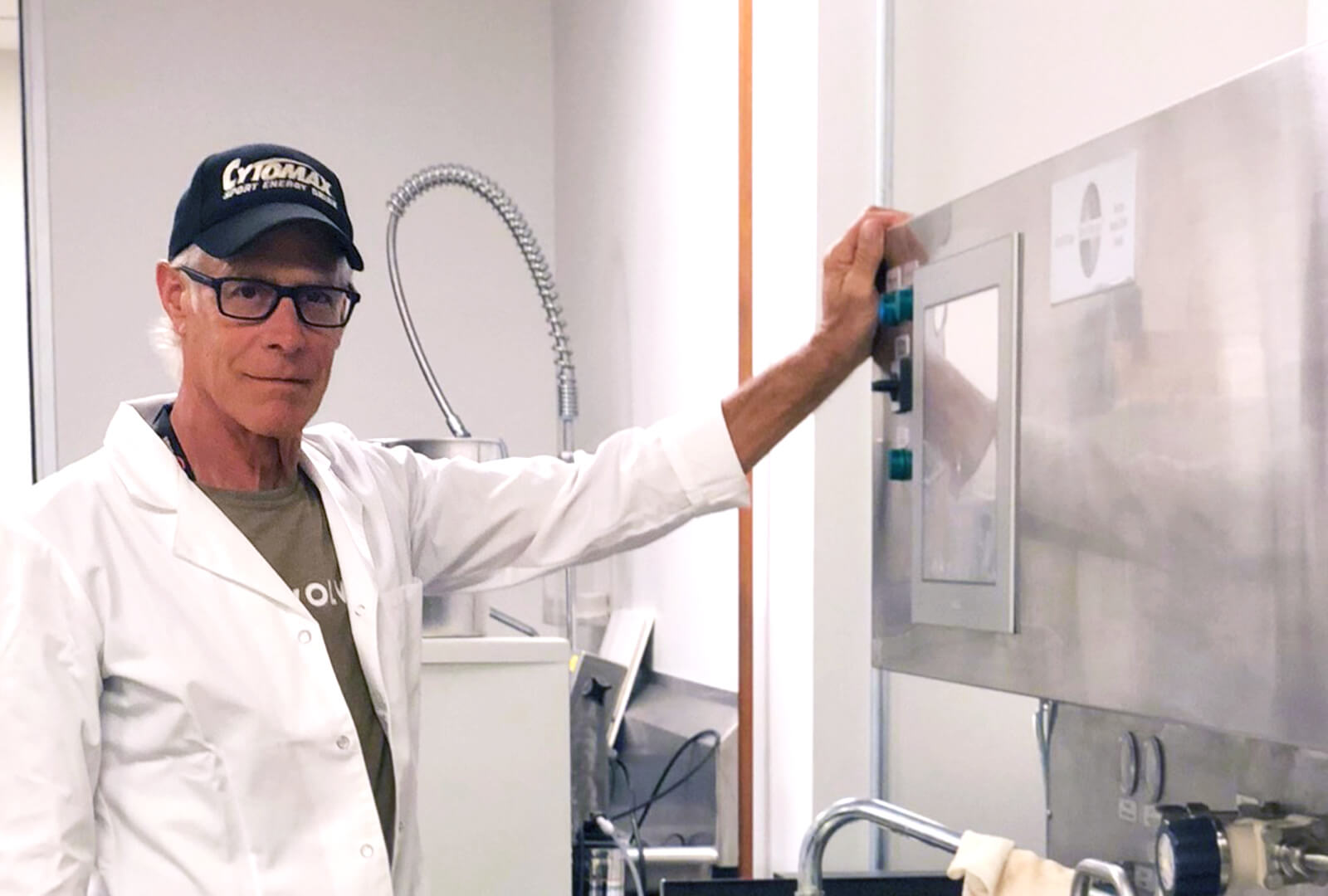Twenty years ago, Frank Povich was sitting at a folding card table. In front of him were two things: a telephone and a bottle of Joint Matrix, CytoSport, Inc.’s first and only product. He talked to it daily.
“I’m going to sell you no matter what happens,” he said.
The product, developed by the strength-and-conditioning coach for the pro football team known as the Oakland Raiders, never answered back. Thankfully, some of Frank’s contacts did. Before long, there was another product to sell, followed by another and another. When Hormel Foods announced in 2014 that it was about to purchase the enterprise, sales were closing in on the $400 million mark.
CytoSport’s Origin Story
Frank told the story recently of how CytoSport began and of how he came to be its first – and for a long time, only – employee and sales person.
“I was self-employed in a business that repaired weightlifting and aerobic equipment,” Frank says. “One of my clients was the Oakland Raiders, which became the Los Angeles Raiders before moving back to Oakland.”
When the NFL franchise returned to Oakland, Calif., in 1995, Frank’s company was hired again to reassemble the team’s weight equipment. That’s when he met Mike Pickett. Mike and his father, Greg, were working in the field of sports and bodybuilding nutrition for a company called Champion Nutrition.
Frank and Mike became fast friends and associates, putting their heads and knowhow together to build a supplement bar adjacent to the Raiders’ weight room. It allowed players to make their own protein shakes after workouts. “They loved it,” Frank says.
Frank’s business took him to many athletic clubs, and when Mike asked him if he would be interested in selling some Champion Nutrition products along the way, he agreed to do it as a side job.
Not long after, Mike and Greg decided to leave Champion to start their own company. Mike again called Frank to see if he would do some sales work for their startup, established and named CytoSport, Inc., in 1998.
“The answer was no,” Frank says.
His business was growing, and he was doing well, counting companies such as Apple, Oracle, 24 Hour Fitness and the San Francisco 49ers among his clients.

Mike called back a few days later. Whether by accident or by design, he hit Frank’s hot button. In the process of trying to convince him to come over to CytoSport, he told him it would be a challenge.
“That’s all it took,” Frank says.
Challenge was probably an understatement. Frank was making hundreds of calls a day for CytoSport, working nights and weekends to keep his other business going.
“It was very difficult, and it was pretty much 24/7,” he says, adding there were times when there wasn’t much money to pay him. “Plus, I wasn’t a salesman. I was an entrepreneur. I wanted to bail several times.”
But persistence and an expanding product line began to pay off. CytoSport introduced a muscle gainer six to 12 months later. Frank “began to get some traction.”
As far as the fitness industry was concerned, whey protein was where it was at, Frank remembers. But then there was a breakthrough. Around 2000, someone came up with a revolutionary concept that bucked the prevailing avoid-fat-at-all-cost thinking. In the process, it likely changed the course of CytoSport.
The Muscle Milk® brand was slowly getting some legs, and by 2001, Frank hit the $1 million mark for the first time. CytoSport’s whey protein and mass gainer were holding their own, “largely because Greg made them taste better than anyone else’s,” Frank says. Shortly afterward, prompted in part by his success with CytoSport and a bad car accident that injured his shoulder,” Frank gave up the business he began in 1975, focusing solely on CytoSport.
It made sense. The company was gaining momentum, and employees were signing on. Mike and Greg hired a VP of sales who was adept at organizing the distribution of the products. For his part, Frank continued to “sell, sell, sell,” and when he had time, was busy poring over books, learning everything he could about sales. “I found out you need a good product, but then it’s all about relationships. The personality of a company is dependent on its salespeople. Knowledge is paramount.”
Frank took the advice to heart, says Nancy Lewison, a member of the Hormel Foods consumer engagement team in Austin, Minn. Calls and emails about Hormel Foods products come to the company’s headquarters in Austin. In the case of CytoSport, sometimes additional resources are called in. “Frank is our go-to guy,” she says.
“CytoSport’s products are supplements, rather than food. So, that’s a little different for us,” Nancy says. “The thing with Frank is this: He was with that company from the time it originated. It’s his baby. He either has the answer, or he knows where to get it.”
Frank always handled customer service as part of his sales role, but he didn’t move to the consumer engagement department until CytoSport underwent an internal reorganization before being acquired by Hormel Foods. It wasn’t a change he asked for, but he took to it like a fish to water. “I love our consumers,” he says. “Without them, we wouldn’t be here. We need to take what they say at 100 percent.”
“Frank has touched almost every aspect of the development of CytoSport,” says Food Scientist Francisco Parada-Rebell.

